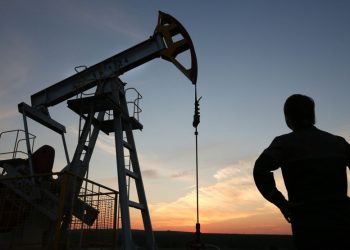The World Bank has raised concerns about Nigeria’s soaring inflation rates, which have led to a significant increase in poverty levels, pushing an estimated four million people below the poverty line between January and May 2023. This dire warning was made during the launch of the Nigeria Development Update in Abuja.
According to the Washington-based lender, if the Federal Government fails to provide compensation or palliative measures following the removal of fuel subsidy, an additional 7.1 million Nigerians could fall into poverty. As of the beginning of this year, the World Bank reported that 89.8 million Nigerians were living in poverty. However, this number has surged by four million individuals in just a span of five months, resulting in a total of 93.8 million people living below the poverty line.
The World Bank’s projections indicate that the number of poor Nigerians could reach a staggering 100.9 million if vulnerable citizens are not adequately compensated for the fuel subsidy removal. These alarming statistics highlight the urgent need for action to address the economic implications and consequences of inflation and subsidy reforms.
The Nigeria Development Update report from the World Bank highlighted the factors contributing to Nigeria’s high inflation rates, including the funding of the budget deficit by the Central Bank of Nigeria (CBN), multiple exchange rates, devaluation, and trade restrictions. The report emphasized that these structural factors, combined with the escalation of inflation in 2022 and 2023, have led to a 17-year high in consumer price inflation.
The CBN attempted to curb rising inflation by raising the monetary policy rate, but these measures proved ineffective, resulting in loose monetary policy in the first half of the year. The loss of purchasing power due to high inflation has exacerbated poverty levels, pushing an estimated four million Nigerians into poverty between January and May 2023.
In May, the National Bureau of Statistics revealed that inflation in Nigeria reached 22.41 percent, the highest in nearly two decades. Additionally, the bureau’s National Multidimensional Poverty Index indicated that 133 million Nigerians experience multidimensional poverty, resulting from limited access to healthcare, education, living standards, employment, and security.
The World Bank’s report further highlighted that the removal of fuel subsidy has led to price increases, negatively affecting poor and economically insecure households. Petrol prices have nearly tripled following the subsidy removal. Approximately 38 percent of the poor and economically insecure households own motorcycles, while 23 percent rely on generators that depend on petrol. The price surge has significant repercussions on their daily lives, including reduced income for transportation and other essential needs.
Without adequate compensation, an additional 7.1 million people are at risk of plunging into poverty due to the subsidy removal. This economic setback may force households to resort to drastic coping mechanisms, such as sacrificing education, healthcare, and nutritious diets.
The World Bank stressed the importance of implementing compensatory measures to shield Nigerian households from the initial price impacts of subsidy reforms. The institution also applauded the removal of the subsidy and foreign exchange management reforms, recognizing them as essential steps toward rebuilding fiscal space and restoring macroeconomic stability.
Addressing the rising inflation and mitigating the effects of subsidy removal are crucial challenges that the Nigerian government must confront to protect vulnerable citizens, foster economic growth, and alleviate poverty. Immediate action is needed to implement targeted interventions and ensure adequate compensation for those affected, while simultaneously pursuing sustainable economic reforms to stabilize the nation’s economy.










